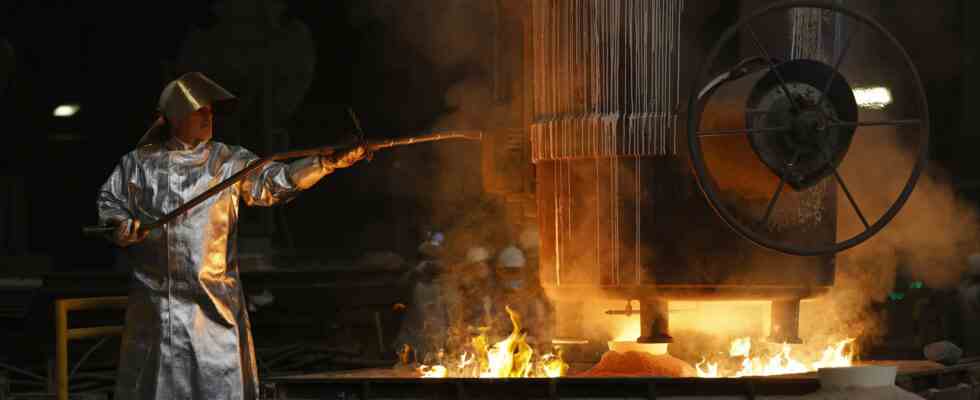Status: 10/26/2022 2:42 p.m
According to a survey by the Chambers of Industry and Commerce, most companies in Germany see little or no opportunity to save even more gas. Either more gas has to be procured or it has to be extracted from power generation.
The majority of German companies see their potential for saving energy as exhausted. This was the result of a survey by the Chambers of Industry and Commerce of 3,500 companies from all sectors. 60 percent of the companies see no or only very little potential for savings in the next five years. According to their own statements, another 20 percent could still reduce their consumption by up to five percent. Only the last fifth of the companies still see potential savings of more than five percent.
The companies have already taken advantage of their short-term savings opportunities, said Peter Adrian, President of the Association of German Chambers of Industry and Commerce (DIHK). “Therefore, further goals to further reduce gas consumption in ongoing production operations are simply unrealistic.”
DIHK: EU targets difficult to achieve
The fact that gas consumption in the economy continues to decline is increasingly the result of production stops or the closure of companies. Therefore, either more gas must be procured or savings made in electricity generation, Adrian said. “This is the only way we will avoid insolvencies and preserve value chains.”
The EU gas emergency plan calls for member countries to use 15 percent less gas between August 2022 and March 2023, compared to the same periods from 2016 to 2021. “For the vast majority of operations, it’s unrealistic based on the reductions made so far to add another 15 percent without seeing further painful production restrictions,” said Adrian.
Companies are interested in gas auctions
According to Adrian, however, the companies that could still save gas are very interested in the so-called gas auctions. In doing so, they reduce their consumption, but receive compensation in return. The gas saved helps to avoid bottlenecks.

